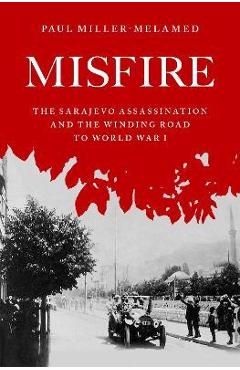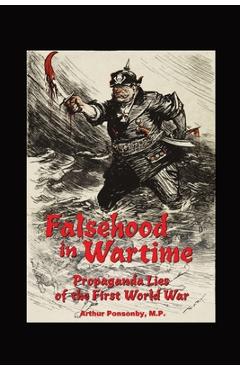The Black Hand: The History of the Secret Serbian Nationalist Group Whose Assassination of Archduke Franz Ferdinand Sparked World War

The Black Hand: The History of the Secret Serbian Nationalist Group Whose Assassination of Archduke Franz Ferdinand Sparked World War
*Includes accounts of the group's members and activities
*Includes online resources and a bibliography for further reading
Although a couple of wars were fought on the European continent during the 19th century, an uneasy peace was mostly maintained across the continent for most of the 19th century after Napoleon. Despite this ostensible peace, the Europeans were steadily conducting arms races against each other, particularly Germany and Britain. Britain had been the world's foremost naval power for centuries, but Germany hoped to build its way to naval supremacy. The rest of Europe joined in on the arms race in the decade before the war started.
With Europe anticipating a potential war, all that was missing was a conflagration. That would start in 1908, when Austria-Hungary annexed Bosnia-Herzegovina in the Balkan Peninsula, drawing it into dispute with Russia. Moreover, this upset neighboring Serbia, which was an independent nation. From 1912-1913, a conflict was fought in the Balkans between the Balkan League and the Ottoman Empire, resulting in the weakening of the Ottoman Turks. After the First Balkan War, a second was fought months later between members of the Balkan League itself.
The final straw came June 28, 1914, when a Serbian assassinated Archduke Franz Ferdinand, the heir to the throne of Austria-Hungary, in Sarajevo, Bosnia. Although there had been explicit displays of commiseration and sympathy for Austria and widespread condemnation of Serbia's actions in the immediate aftermath of Franz Ferdinand's assassination, the attitude of the great powers towards Austria as the notional aggrieved party became substantially chillier as Austria insisted on virtually bullying Serbia over the whole affair. The British Prime Minister, Asquith, complained in an official letter that Serbia had no hope of appeasing Austria diplomatically, and that the terms of the July Ultimatum would've been impossible to meet even if Serbia was willing to do so. Indeed, it appears as though such an exacting document had been drafted precisely because Serbia didn't have a hope of complying, even if they had so wished, and thus Austria-Hungary would be able to go to war and punish them properly for the outrage perpetrated against their royal family.
Serbia and the world at large would pay a heavy price for the assassination, which was carried out by conspirators associated with the Black Hand. This ominously named secret soci
PRP: 79.36 Lei
Acesta este Pretul Recomandat de Producator. Pretul de vanzare al produsului este afisat mai jos.
71.42Lei
71.42Lei
79.36 LeiLivrare in 2-4 saptamani
Descrierea produsului
*Includes accounts of the group's members and activities
*Includes online resources and a bibliography for further reading
Although a couple of wars were fought on the European continent during the 19th century, an uneasy peace was mostly maintained across the continent for most of the 19th century after Napoleon. Despite this ostensible peace, the Europeans were steadily conducting arms races against each other, particularly Germany and Britain. Britain had been the world's foremost naval power for centuries, but Germany hoped to build its way to naval supremacy. The rest of Europe joined in on the arms race in the decade before the war started.
With Europe anticipating a potential war, all that was missing was a conflagration. That would start in 1908, when Austria-Hungary annexed Bosnia-Herzegovina in the Balkan Peninsula, drawing it into dispute with Russia. Moreover, this upset neighboring Serbia, which was an independent nation. From 1912-1913, a conflict was fought in the Balkans between the Balkan League and the Ottoman Empire, resulting in the weakening of the Ottoman Turks. After the First Balkan War, a second was fought months later between members of the Balkan League itself.
The final straw came June 28, 1914, when a Serbian assassinated Archduke Franz Ferdinand, the heir to the throne of Austria-Hungary, in Sarajevo, Bosnia. Although there had been explicit displays of commiseration and sympathy for Austria and widespread condemnation of Serbia's actions in the immediate aftermath of Franz Ferdinand's assassination, the attitude of the great powers towards Austria as the notional aggrieved party became substantially chillier as Austria insisted on virtually bullying Serbia over the whole affair. The British Prime Minister, Asquith, complained in an official letter that Serbia had no hope of appeasing Austria diplomatically, and that the terms of the July Ultimatum would've been impossible to meet even if Serbia was willing to do so. Indeed, it appears as though such an exacting document had been drafted precisely because Serbia didn't have a hope of complying, even if they had so wished, and thus Austria-Hungary would be able to go to war and punish them properly for the outrage perpetrated against their royal family.
Serbia and the world at large would pay a heavy price for the assassination, which was carried out by conspirators associated with the Black Hand. This ominously named secret soci
Detaliile produsului





























